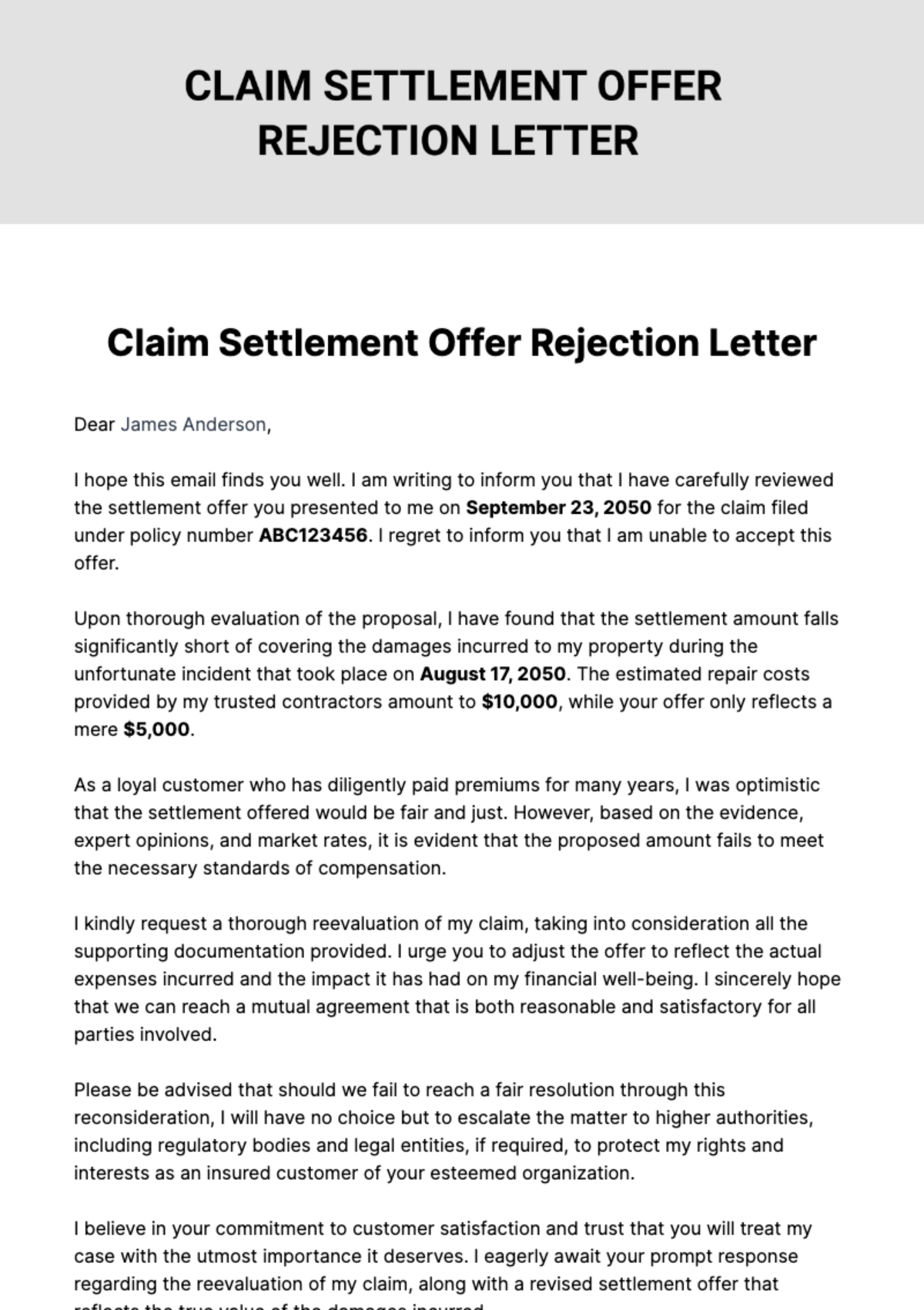Can A Settlement Offer Be Withdrawn After Acceptance

Imagine the handshake, the sigh of relief, the mental calculations already underway. A long-fought legal battle, finally nearing its end. A settlement offer, extended after months of negotiation, has just been accepted. The weight of uncertainty begins to lift. But then, a wrench is thrown into the works: can that accepted offer be withdrawn?
The question of whether a settlement offer can be withdrawn after acceptance is a complex legal issue, fraught with nuances and dependent on specific circumstances. Generally, once an offer is accepted, a binding contract is formed, making withdrawal difficult. However, exceptions exist, hinging on factors like jurisdiction, the offer's wording, and the presence of mistakes or fraud.
The Foundation: Contract Law Basics
At its core, the enforceability of a settlement agreement rests on the principles of contract law. A contract requires an offer, an acceptance, and consideration – something of value exchanged between the parties.
When a settlement offer is made and accepted, it generally constitutes a binding agreement, assuming consideration exists (usually the agreement to forgo further legal action).
Think of it like buying a car: once you agree on a price and shake hands, you both are committed.
Offer and Acceptance: The Critical Moment
The precise moment of acceptance is crucial. Jurisdictions often have specific rules about when acceptance is considered valid – is it when a letter is mailed (the "mailbox rule"), or when it's received?
The offer itself can also dictate the method and timing of acceptance. Ambiguity in the offer can create grounds for later disputes about whether a valid acceptance occurred at all.
For example, if the offer stipulates that acceptance must be in writing and delivered by a specific date, those conditions must be met.
Exceptions and Challenges to Withdrawal
Despite the general rule of enforceability, there are situations where withdrawing a settlement offer, even after acceptance, might be possible.
These exceptions are usually narrowly construed, requiring strong evidence and compelling legal arguments.
It's not a simple "change of heart" kind of situation.
Mistake
A unilateral or mutual mistake can sometimes invalidate a contract. A unilateral mistake occurs when one party is mistaken about a fundamental aspect of the agreement.
However, it’s often difficult to rescind a contract based on a unilateral mistake unless the other party knew or should have known about the mistake. A mutual mistake, where both parties are mistaken about a fundamental aspect of the agreement, is more likely to be grounds for rescission.
For instance, if both parties believe a piece of property has a certain value based on incorrect information, the settlement might be challenged.
Fraud or Misrepresentation
If one party induced the other to enter into the settlement agreement through fraud or misrepresentation, the agreement can be set aside. This requires proving that a false statement was made, that the speaker knew it was false, and that the other party relied on the statement to their detriment.
For example, if a defendant concealed crucial financial information during settlement negotiations, leading the plaintiff to accept a lower offer than they otherwise would have, the settlement could be challenged.
Showing that the other party intentionally misled you is essential.
Lack of Capacity
A contract can be deemed invalid if one of the parties lacked the legal capacity to enter into it. This typically applies to minors, individuals with mental incapacities, or those under the influence of drugs or alcohol.
If a party lacked the mental capacity to understand the terms of the settlement agreement at the time of acceptance, a court may find the agreement unenforceable.
Protecting vulnerable individuals from being taken advantage of is vital.
Duress or Undue Influence
A settlement agreement can be challenged if it was entered into under duress or undue influence. Duress involves coercion or threats that deprive a party of their free will.
Undue influence involves exploiting a position of power or trust to persuade someone to enter into an agreement against their best interests. Imagine a scenario where someone is pressured intensely to sign a document right after surgery, they are extremely weak and vulnerable.
These situations undermine the voluntary nature of the agreement.
The Role of Legal Counsel
Navigating these complexities underscores the importance of seeking legal counsel before entering into any settlement agreement. An experienced attorney can review the offer, advise on its terms, and help ensure that the client fully understands their rights and obligations.
If grounds for withdrawal exist, an attorney can assist in presenting a strong legal argument to the court. Legal representation can often prevent the need for withdrawal in the first place by carefully drafting the settlement agreement.
It's about prevention, not just cure.
Practical Considerations and Prevention
To minimize the risk of disputes regarding withdrawal, several practical steps can be taken. Firstly, ensure that the settlement offer is clear, unambiguous, and specifies all material terms.
Secondly, document all communications and negotiations related to the settlement. Thirdly, obtain legal advice before accepting any offer.
Think of it as building a strong foundation for the agreement.
The Impact on the Legal System
The issue of withdrawing settlement offers has broader implications for the legal system. Upholding the enforceability of settlement agreements promotes efficiency and reduces the burden on the courts.
However, allowing withdrawal in limited circumstances ensures fairness and protects parties from being bound by agreements entered into under duress, fraud, or mistake.
It's a balancing act between upholding agreements and ensuring justice.
Conclusion: Navigating the Waters of Settlement
The ability to withdraw a settlement offer after acceptance is a narrow exception to the general rule of enforceability. While the law favors upholding agreements, it also recognizes that circumstances can arise where withdrawal is justified.
Understanding the legal principles involved, seeking professional advice, and taking proactive steps to ensure clarity and fairness in the settlement process are crucial. Each case is unique, requiring careful consideration of the specific facts and applicable laws.
Ultimately, a well-considered settlement, entered into freely and with informed consent, is the most likely to bring a lasting and satisfactory resolution.







+of+Offer.jpg)










